

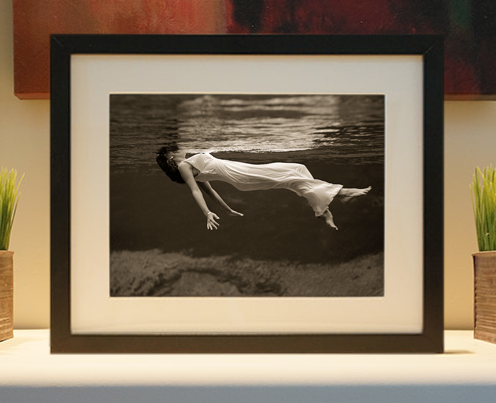
Framed or unframed, desk size to sofa size, printed by us in Arizona and Alabama since 2007. Explore now.
Shorpy is funded by you. Patreon contributors get an ad-free experience.
Learn more.

- Famous Hollywood faces
- Not just S&P
- re: Those things in the jar
- Up In Smoke
- Medical Smoking
- Quick fix
- A Quink Comment
- If You’re Like Me, Never
- Delivering the News
- U.S.A.
- S&P
- 1940 Zenith radio model 6G601
- Quality goes in before the name goes on!
- Snazzy skirt
- Carbon Arc Lamps
- Illuminate us
- I remember it well
- I can't prove it
- Complicated then, forgotten now
- Bryan-Stevenson
- Skinny is as skinny does
- How do you rest in peace
- Riding the footboards
- Alas, hidden from view
- Baldwin Diesels
- Exclusive pump
- Bananas, Oysters and Smokey Joe
- Details, Details
- What's that building to the left of the tower?
- Coal Barges
Print Emporium
Family Trip: 1939
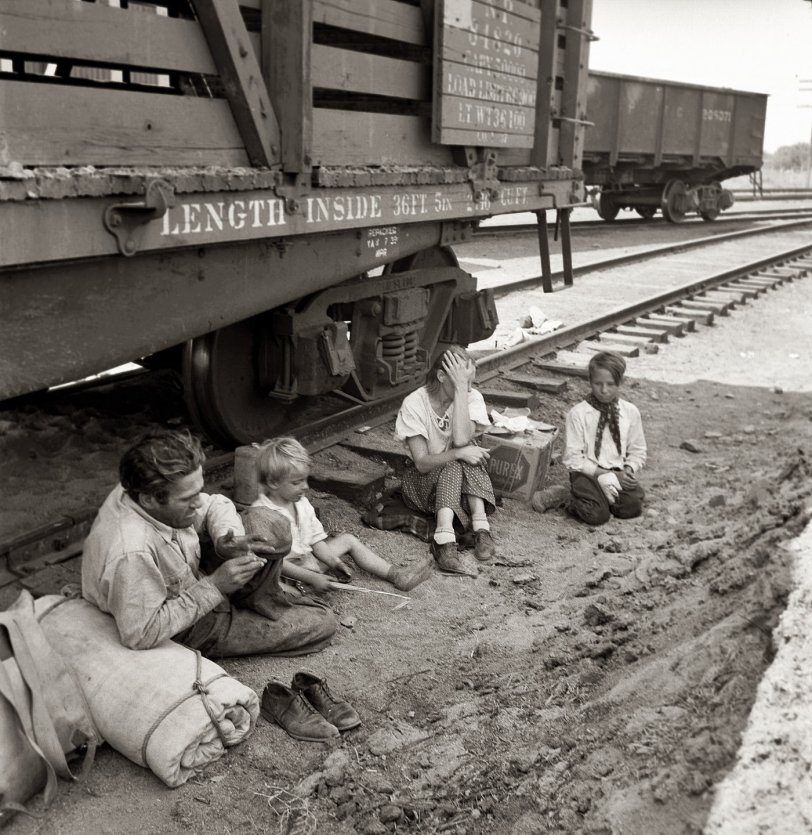
August 1939. Agricultural migrants. "Family who traveled by freight train. Toppenish, Washington. Yakima Valley." View full size. Medium-format nitrate negative by Dorothea Lange for the Farm Security Administration.
Hard Travellin': The Hobo and His History
I recently read "Hard Travellin': The Hobo and His History" by Kenneth Allsop. Anyone interested in the story of homelessness, migrant workers, hoboing, the roots of the labour movements, etc., should read it.
Riding the rails...
My grandfather was part of an obscure local railroad -- Indianapolis Union Belt, which eventually became part of Conrail. Back in those days, jobs were hard to come by and they followed the rulebook quite seriously. The "bulls," as he called the railroad police, were notoriously cruel to hobos and to people who had a soft spot for them. They were a clique that didn't hang out with the rest of the workers.
I'd stop the engine
My Father-in-law came from a "RR" family and from the way he described it you would not stop if you wanted to keep your job.
It took 30 years of service to earn a pension, you could get 26/28 years no problem, it was the last 3or4 that were very hard. He said they watched you like a hawk any misstep and you were fired ,so no I don't think you would stop.
Morals
The father at least didn't abandon the family and set off on his own. Could we say the same for families today. No, I think either the mother would dump the guy and go on welfare or the guy would run off to start a new life. This shows how family morals have changed over the last 75 years.
Re: My Grandfather
Good for your grandfather! If I had been running the train, I would have stopped the engine to allow a family like this to climb aboard. Why not? It's not like the railroads were losing any money by hauling people in an otherwise empty boxcar. Liability issues, no doubt. But would any of these people have been likely to hire a lawyer and file a lawsuit?
Look at the trains in India: wall-to-wall people, sitting atop the cars, hanging out the windows and off the sides.
"May I see your ticket, please?" No way.
The Kid
While it can be a tough call, the child on the right appears to be a boy, no? And the wingtips in Feeling Low do not match the plain shoes in Family Trip, fwiw...
Can we assume...
the young child on the right is the "feeling low" Ms. Toppenish captured by Dorothea before or after this photo?
Denny Gill
Chugiak, Alaska
Optical Illusion
I think I was mistaken. Dad's shoes are a pair. I guess it's all a matter or perspective.
Goober Pea
Shoes Don't Match
Look at Dad's shoes - a mixed pair, I think. They may not have been a good fit; he's letting his dogs breathe without them.
RE: "poor choices" - the U. S. unemployment rate in 1939 was 17.3%, compared to about 5% today. Maybe their "poor choice" wasn't a choice at all, but simply because they were part of that unfortunate 17.3%. It would take almost two years from the day this photo was taken for the wartime economy and the draft brought the U.S. economy to almost full employment.
[Below, a comparison of styles then and now. - Dave]
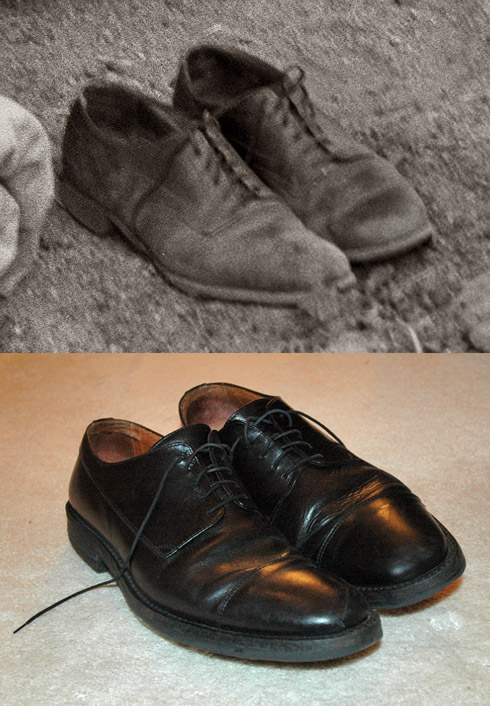
My Grandfather
Was a migrant farm worker when he was in his teens in the early 30's. He (somehow) convinced the Chicago, Rock Island, and Pacific Railroad to hire him on as a fireman in 1936 on his 18th birthday.
He always refused to throw hobos off the train and during the cold winters of Illinois and Missouri he'd let women and children have his seatbox in the cab, he often received demerits for his humane treatment of those he only recently rose above.
Mother
I think that generally mother here is the only person that's not content with the situation. I also think she was the only person here who didn't want this photo to be taken.
I was also born in 1939, and
I was also born in 1939, and raised by an almost-illiterate widow. She made good use of her "widow's mite' however, so that we had a modest house, an old car, food at mealtimes, and heat (one of my chores as an adolescent and teen was fire-tender). While we had no books, magazines, or newspapers in the house, I was nevertheless encouraged constantly to go to school and get as much out of it as I could. While she might be disappointed that I never quite got the bachelor's degree, she would be delighted if she could know the level of affluence I have reached today.
How does this relate? Well, one wonders to what extent this picture shows the result of bad luck or whether it is due to poor choices.
Migrant Family
I was born in the month and year this photo was taken. While my family was by no means affluent, we had it good compared to this family and countless others across the country. We had a roof over our heads, coal to heat, and food on the table. It's humbling to see photos like this.
Despite the hard times this family is evidently experiencing, the little boy seems perfectly content. He's found a stick to play with, like little boys do.
His mother, on the other hand, seems to be thinking, "What will we feed these children tonight?"





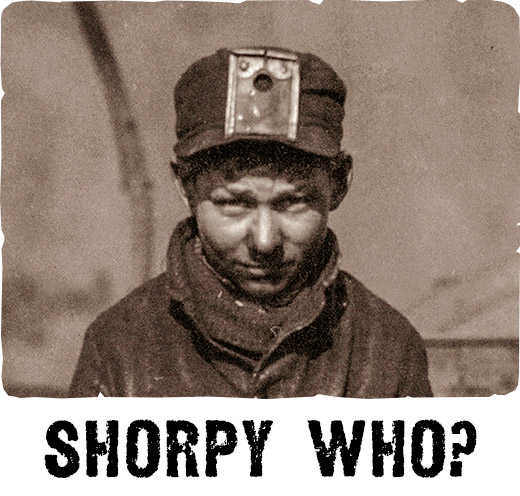
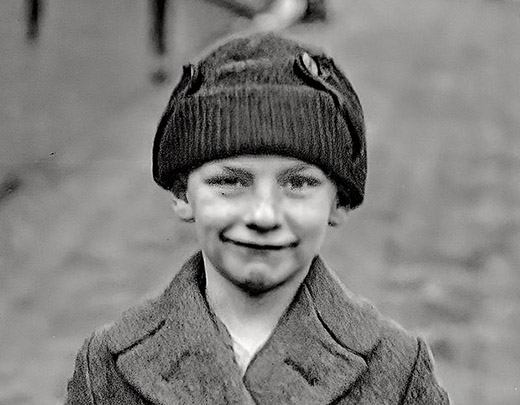
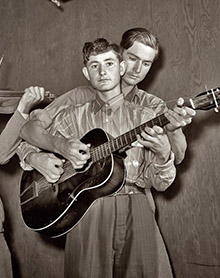
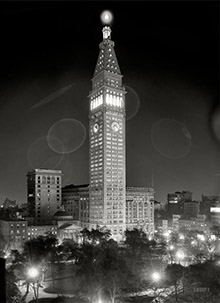
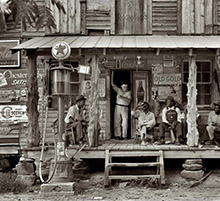
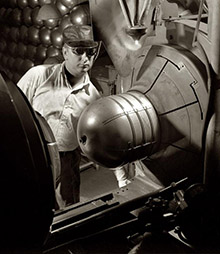
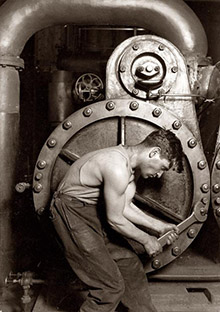

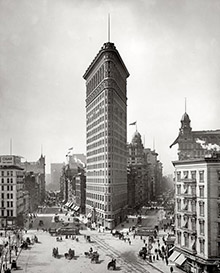



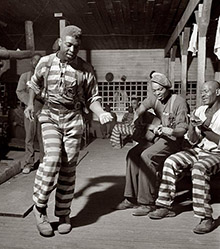
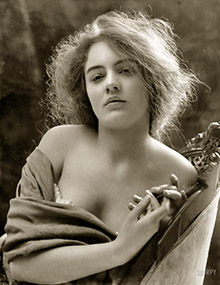
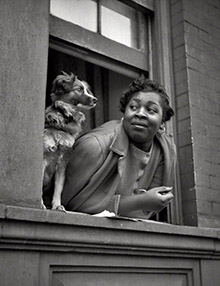

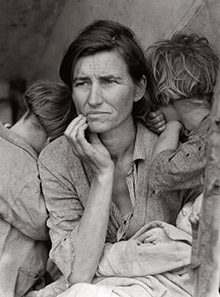

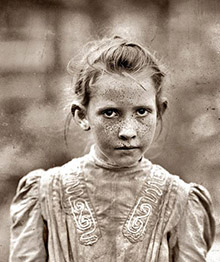
On Shorpy:
Today’s Top 5